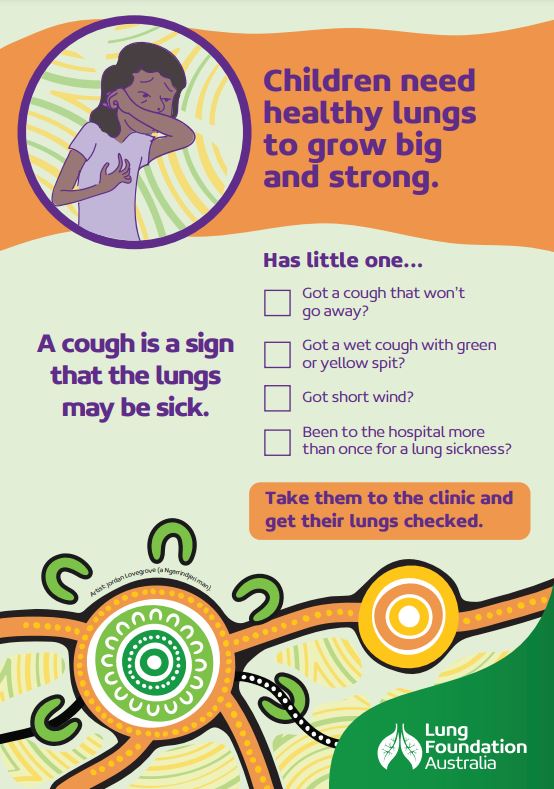A chronic wet cough in children is not just a minor illness—it can be a sign of serious lung disease. This factsheet provides critical health information for Aboriginal and Torres Strait Islander families, helping them recognise, manage, and prevent chronic wet cough in young children. Early detection and treatment are essential for protecting lung health and ensuring children grow strong and healthy.
A cough lasting more than four weeks, especially if wet and producing green or yellow mucus, may indicate lung disease. If left untreated, it can lead to serious respiratory conditions such as bronchiectasis or permanent lung damage. Families are encouraged to seek medical help early to prevent complications and support children’s long-term health.
Things you can do
Visit the clinic: If a child has a persistent wet cough, take them to a health clinic or Aboriginal Medical Service for an assessment. Doctors may recommend tests or antibiotics if needed.
Keep homes and cars smoke-free: Second-hand smoke damages lungs and increases the risk of respiratory illness.
Avoid smoke and dust exposure: Reducing exposure to irritants helps prevent lung infections.
Stay up to date with vaccinations: Immunisations protect against serious infections that can cause lung disease.
Healthy diet and exercise: Nutritious food and active play help build strong lungs and immune systems.
This factsheet empowers Aboriginal and Torres Strait Islander families with life-saving knowledge about lung health and the steps they can take to prevent a chronic wet cough becoming a long-term (chronic) issue. By recognising the warning signs of chronic wet cough and taking early action, parents and caregivers can ensure children get the care they need to breathe easy and thrive. If a child’s cough lasts for more than four weeks, visit a health clinic or your local health service for assessment and treatment by a health professional.
Was this page helpful?
Good job! Please give your positive feedback
How could we improve this post? Please Help us.
